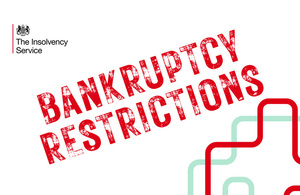Statutory Demand vs Pre-action letter

How do Stat Ds and pre-action letters differ?
Pre-action letters and Statutory Demands (also known as Stat Ds) are useful tools for chasing longstanding and undisputed debts. But how do they differ?
Firstly, the names of the participants involved.
Whoever issues the Statutory Demand is an ‘applicant,’ but the sender of pre-action letter is a ‘claimant’. Likewise, the recipient of Stat D is a ‘respondent,’ but someone who receives a pre-action letter is a ‘defendant’.
Secondly, Statutory Demands and pre-action letters have completely different outcomes.
A pre-action letter is a formal notice requesting payment of an overdue debt within 14 days. Ignoring this letter results in civil proceedings, which is a County Court money claim.
In contrast, a Stat D informs the respondent that unless the debt is paid, insolvency proceedings will commence.
Responding to a Stat D
Statutory Demands are precursors to formal insolvency proceedings, and can lead to the Winding- Up of a company or person. There are 3 main ways to respond to a Stat D:
- Arrange to pay all or part of the debt
- Dispute the debt either partially or completely
- Pay the debt swiftly.
Similarly, an application may be submitted to the court for a Winding-up Petition if the debt is:
- Undisputed
- £750 or more
- Unpaid after 21 days.
After 3 weeks, the applicant is free to issue a Winding-Up Petition because they now have evidence of insolvency.
A respondent who disputes the debt must reply in writing within 21 days, setting out their grounds for contention. If this is followed by an invitation to withdraw the Statutory Demand, the applicant must oblige.
An applicant may issue a Stat D for a debt that’s less than 6 years old. Legally, if they want to bankrupt the respondent, a Stat D must be served first. But this isn’t always necessary when Winding-up a limited company.
What Is a Bankruptcy Restrictions Order (BRO)?
When you declare bankruptcy, you enter a 12-month period as an “active bankrupt,” during which you must adhere to a set of restrictions. If you…
Read MoreKingsway Square Limited (In Administration)
Did you purchase an off-plan property with Kingsway Square Limited (In Administration) which has not been developed – would you like your deposit returned? Are…
Read MoreGibraltar Financial Services Commission (GFSC) – Did they fail Loan Note Holders?
As a loan note holder, you may have placed your trust in regulatory bodies such as the Gibraltar Financial Services Commission (GFSC) to safeguard your…
Read MoreGibraltar Financial Services Commission (GFSC) – 100% Asleep at the Regulatory Wheel
Faith in Regulations Insolvency & Law (I&L) recently received confirmation from the Gibraltar Financial Services Commission (GFSC) that Castle Trust and Management Services Limited (CTMS)…
Read More


